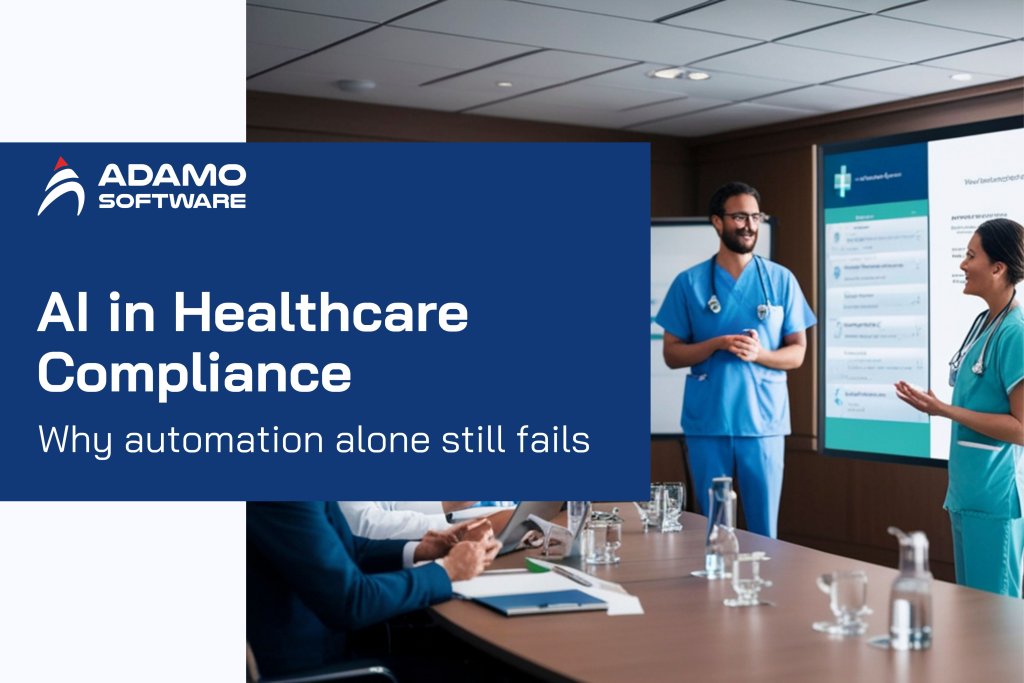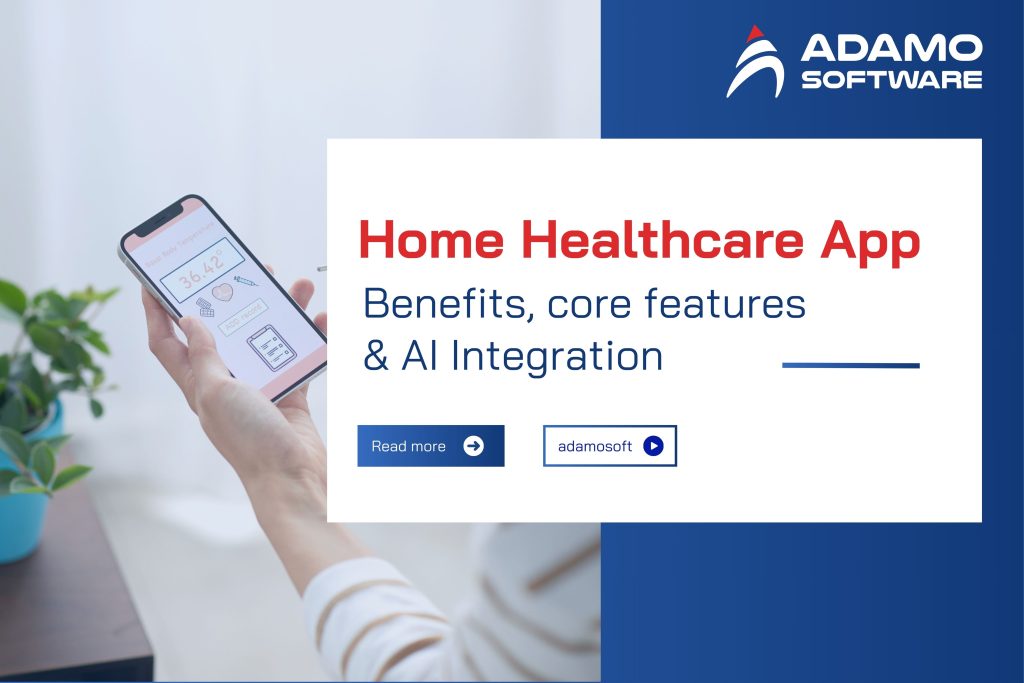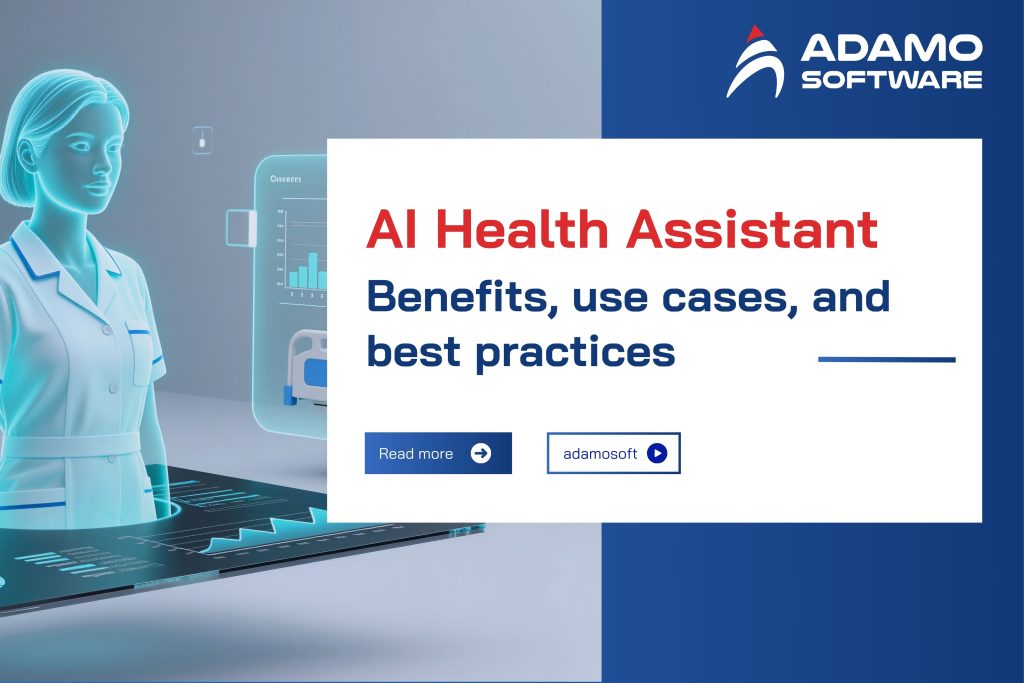Healthcare ERP: What is it, benefits and top-rated systems
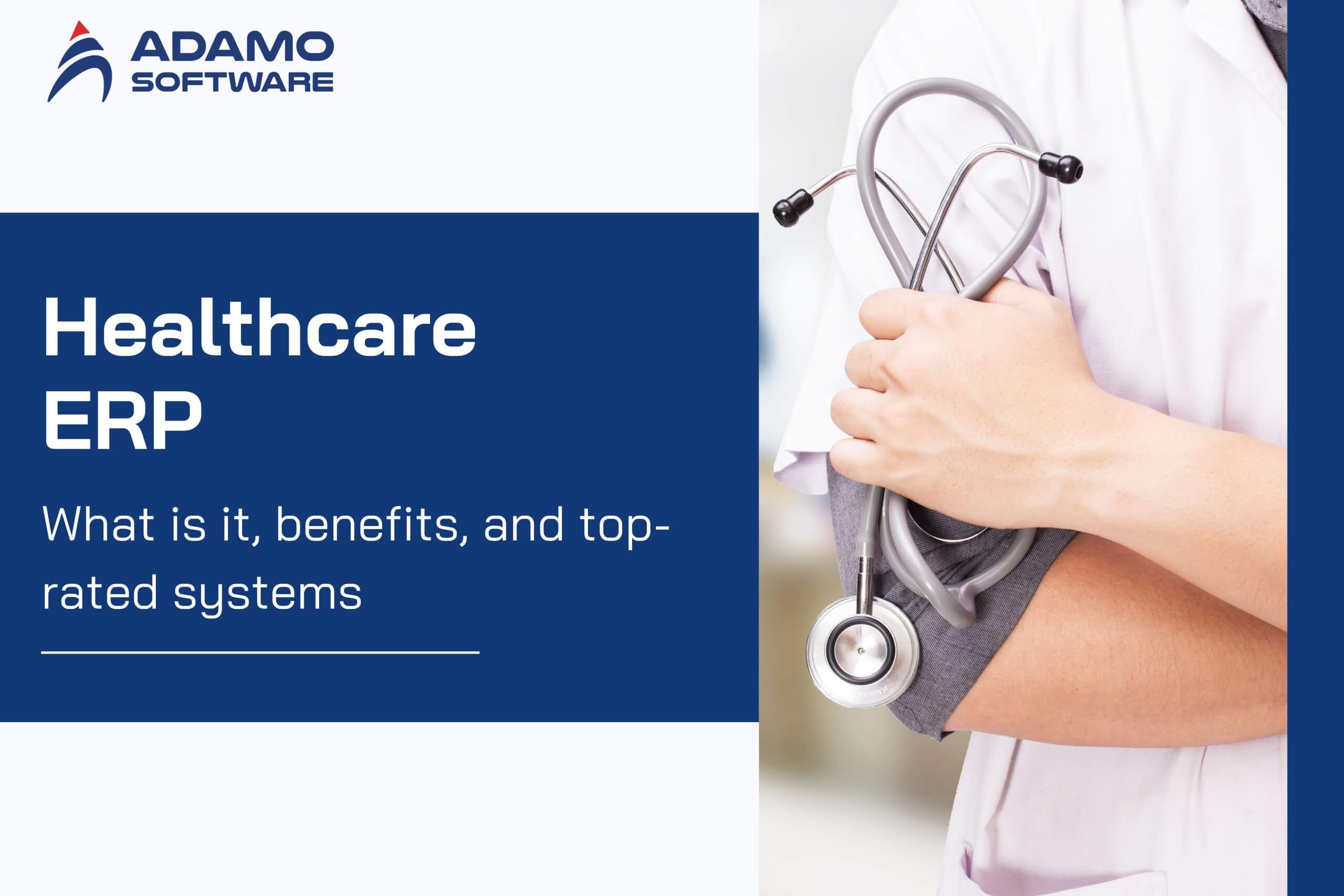
Explore healthcare ERP solutions & their integration with healthcare ERP for streamlined operations.
In the current fast-moving healthcare environment, technology functions to improve both healthcare operations and patient care delivery.
Healthcare ERP systems provide a single platform that joins organizational functions to create efficient, seamless operations and better decision capabilities. Electronic patient record solutions extend beyond just managing patient health information. They also include financial operations, inventory monitoring, and human resource management.
Organizations in the healthcare sector can cut operation costs while increasing compliance levels and achieving better patient results through these systems.
This blog will examine healthcare ERP systems alongside their advantages and present recommended solutions from existing market options.
I. What is Healthcare ERP?
Healthcare ERP software solution serves organizations with various department modules that monitor data and improve communication and departmental collaboration throughout healthcare services. Healthcare ERP systems deliver crucial functions by implementing operational process automation, enhancing data, and allowing decision-making based on up-to-date insights.
Healthcare ERP systems execute administrative procedures, including billing, inventory control, and staff planning, which decrease human mistakes and enhance operational speed. The centralized platform consolidates data from clinical operations and financial information for complete organizational visibility. Hence, healthcare professionals gain access to essential patient data stored in ERP systems through the integrated system structure. The smooth data integration system enables healthcare providers to achieve better patient results through decisions made with real-time clinical information.
ERP solutions both cut operational expenses and improve compliance through streamlined workplace procedures. For instance, strategic planning is enhanced by business intelligence and analytics tools, improving resource management and operational quality. Healthcare ERP systems also possess modular components that can be customized to serve different healthcare organizations, including hospitals, clinics, and pharmaceutical companies.
Overall, healthcare ERP systems can adjust to changing operational requirements and technological advancements due to their adaptable structure. This flexibility makes them an excellent complement to patient data management through healthcare ERP systems.
You can explore more about Hospital Management Systems: Types, Key Features & Must-Know Insights here.
Ready to Outsource?
Discover how we can transform your business with expert IT solutions.
II. Main types of Healthcare ERP systems
Healthcare ERP systems have experienced extensive development into multiple types, which are grouped based on implementation style and operational capabilities.
Healthcare institutes use their implementation method to categorize three system types: on-premises ERP, cloud ERP, and hybrid ERP. Out of these types, healthcare organizations can select solutions that provide specific benefits that match their functional and technology requirements.
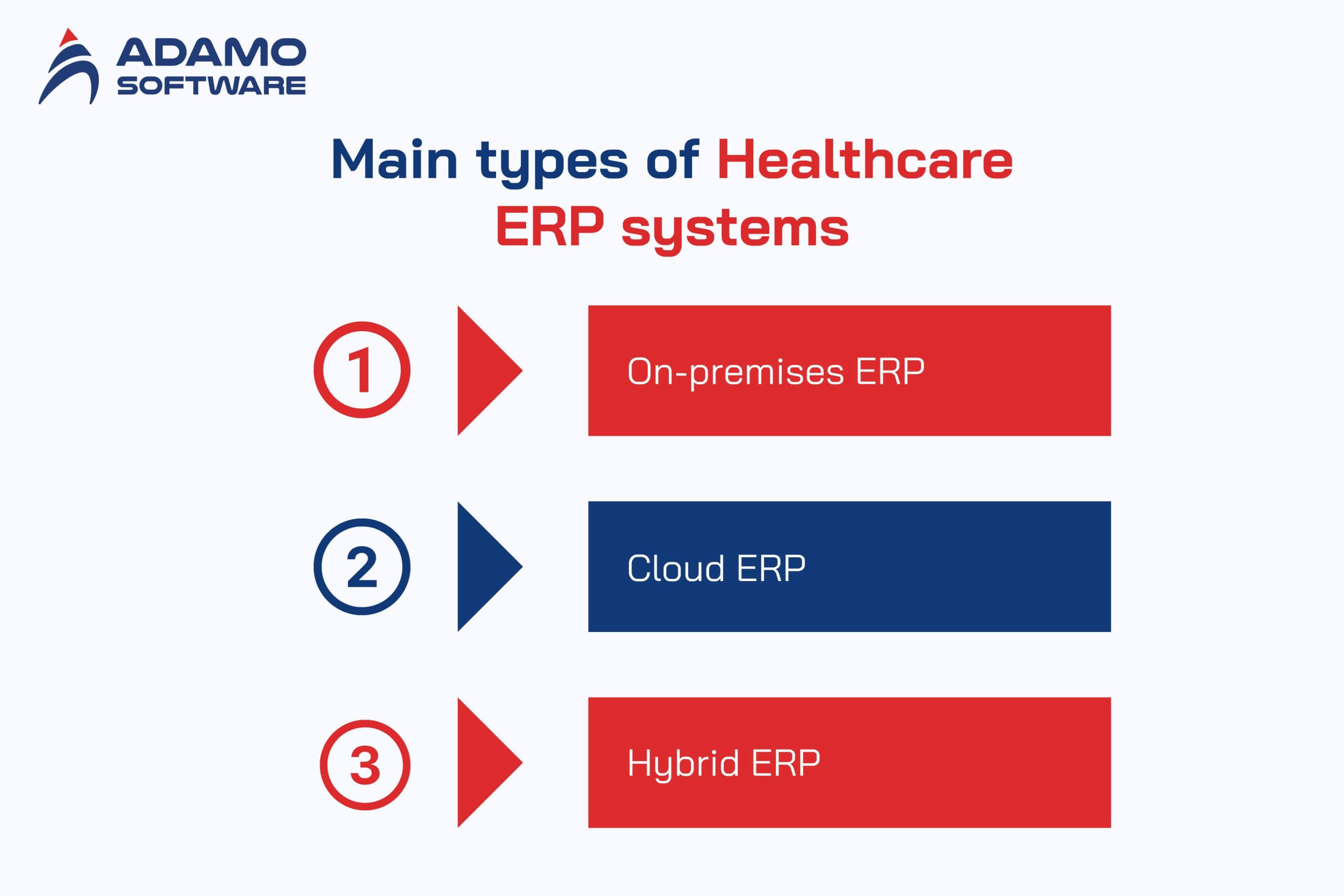
1. On-premises ERP
The on-premises healthcare ERP system enables large healthcare institutions that need comprehensive customization and server control to operate directly on their internal servers.
Healthcare organizations dealing with persistent patient data can protect their information best by choosing systems with local storage since all information remains on-site. The local implementation of ERP solutions lets healthcare providers modify systems through integration with their present IT frameworks.
Installing an on-premises ERP system, however, will require organizations to pay substantial costs for their hardware, equipment, software applications, and setup procedures. In addition, frequent maintenance operations demand dedicated IT staff members, which also increases operational expenses for healthcare institutions.
Institutional operators choose on-premises ERP solutions because of the technology’s comprehensive management features, although they must handle the setup costs and staff maintenance expenses it requires. On-premises ERP integrates smoothly with healthcare ERP systems to ensure efficient patient data protection and clinical/workflow management within the system.
2. Cloud ERP
Cloud healthcare ERP systems allow users to access data through the Internet, making them highly suitable for small to medium hospital organizations.
Health organizations find these systems affordable because they dispense the need for substantial expenses on hardware equipment alongside IT infrastructure. Using usage-based payment models, organizations can subscribe to cloud ERP solutions for their operational needs. This results in automated scalability and convenience in adjusting according to their changing requirements.
Service providers undertake system updates and security patch responsibilities to make maintenance processes easier in cloud-based ERP deployments. This approach ensures a system update without requiring dedicated IT maintenance staff. Additionally, access to real-time data anywhere constitutes a significant collaboration advantage cloud ERP provides, especially when multiple sites are involved in healthcare operations.
Overall, integrating healthcare ERP systems with cloud ERP generates easy data exchange between clinical and administrative departments. This will allow healthcare professionals to enhance decision-making capabilities and patient care quality. Organizations need to ensure the secure protection of their data because internet connectivity dependency and privacy concerns persist as potential challenges.
3. Hybrid ERP
Organizations operating healthcare ERP systems through hybrid approaches leverage the best characteristics of local servers and cloud platforms. This supports flexible solutions for developing and medium-sized healthcare organizations.
Healthcare institutions can use this model to store their vital applications and sensitive information on their local servers. In the meantime, they can also benefit from cloud-based features for their non-core systems. Additionally, hybrid ERP systems give healthcare organizations secure data protection measures for sensitive information and cloud-based services with economical and scalable benefits. Essentially, this type benefits organizations that need to move from legacy systems to modern ERP solutions. It does this by allowing step-by-step implementation that stops disruptive effects on ongoing operations.
Overall, hybrid healthcare ERP systems help create automatic patient records and administrative data connectivity across multiple systems. Healthcare institutions should consider this option as their adjustable nature will provide an effective strategy for operational efficiency alongside process control.
III. Significant benefits of Integrated ERP for hospitals
Every day, healthcare organizations handle substantial data volumes. This demands high-end healthcare ERP systems to optimize operations and maintain alignment with evolving health information technology systems.
Some of the key benefits that healthcare ERP delivers that make integrating this software a must for modern hospitals is:
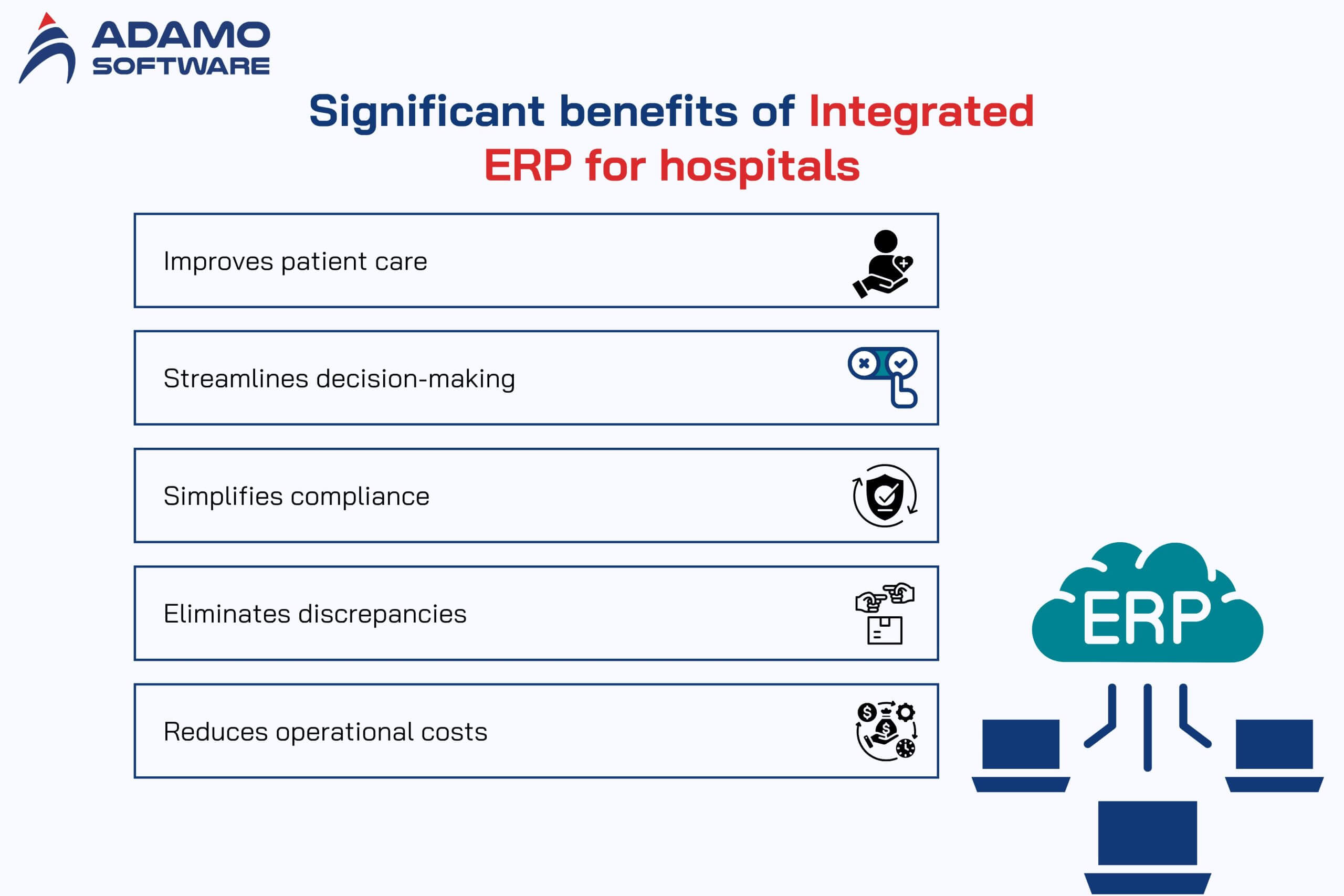
1. Improves patient care
ERP systems improve patient care by streamlining workflows, increasing stock visibility, and reducing paperwork errors in healthcare organizations.
Inventory management through the module allows staff members to perform clinical duties because the system maintains uninterrupted supply availability throughout their departments. The automated processes handled by ERP systems let healthcare staff direct their attention to patient needs instead of handling administrative tasks.
Moreover, better department communication is achieved with these systems because they enable the safe exchange of essential information throughout the healthcare environment.
Overall, the integration between hospital healthcare ERP systems enhances patient records accuracy and accessibility. Thus, they facilitate prompt clinical decisions to deliver better care to patients.
2. Streamlines decision-making
Organizations using healthcare ERP systems and business intelligence modules can help their managers deploy evidence-based decisions quickly.
For instance, organizations gain from a comprehensive performance view, providing quick access to accurate data via detailed reports and visualizations. Decision-makers can also solve organizational problems ahead of time by using this operational understanding to detect impediments and allocate resources efficiently. Furthermore, health facility administrators can modify staff distributions during busy times through patient flow data analysis.
3. Simplifies compliance
Both healthcare facilities and their organizations must focus on compliance systems because regulations protect patients as well as staff members and operational structures.
Integrating financial ERP systems makes compliance easier because these systems collect organizational data into one traceable management platform. A centralized digital data environment makes report generation during audits more efficient when combined with documentation needs for reporting purposes. Hospitals can also achieve regulatory compliance through automated tracking, which monitors standard evolutions.
Data security functions are enhanced when healthcare ERP systems integrate with ERP solutions through advanced encryption and access controls. These measures protect sensitive patient information while meeting business requirements for HIPAA compliance.
4. Eliminates discrepancies
Healthcare organizations benefit from integrated ERP systems since these systems bring different departmental data together under one complete platform. The smooth integration brings teams closer and minimizes confusion to create better partnership interteamwork. Direct memory access via ERP systems also reduces communication challenges because clinical departments can transmit immediate information updates to administrative staff.
Additionally, healthcare operational efficiency grows through departmental collaboration, which enables the system to achieve shared institutional aims. Hospital-wide patient record updates are achievable through an integrated ERP system, which minimizes errors while improving departmental coordination efforts in healthcare delivery.
5. Reduces operational costs
The most vital advantage of healthcare systems with integrated ERP capabilities includes their capability to reduce overall operational costs. These systems cut operational expenses by automatic task management for immediate administrative functions and workflow optimization, minimizing human error in labor-based procedures.
ERP systems identify resource areas that need improvement through inventory management and staffing schedule analysis because they enhance resource utilization efficiency. Healthcare ERP systems create a whole operational picture of organizations to help hospitals save costs while maintaining quality service delivery.
IV. Top-rated Healthcare ERP systems for healthcare organizations
1. Epic
Epic is a major healthcare ERP system vendor that provides solutions to more than 250 million patients worldwide. Epic’s user-friendly system includes its comprehensive EHR platform and integration of practice management and revenue cycle management features.
Healthcare providers select Epic as a preferred solution because of its labeled templates and powerful documenting functions. Patient and healthcare provider interactions, electronic prescribing, and clinical decision support functions are part of existing Epic features. Additionally, the Epic patient portal lets patients view their medical records and schedule appointments. It also facilitates secure communication with healthcare staff, complying with HIPAA standards.
However, the high implementation timeframe and cost hinder Epic’s suitability as an organizational solution for small healthcare institutions. Also, the implementation of Epic may face hurdles when merging this system with other healthcare-specific programs.
2. Cerner
Cerner focuses on delivering healthcare ERP systems that serve various specific healthcare institutional requirements. Their EHR system has four main components: clinical decision support, computerized order entry, medication management features, and electronic prescription functionality.
Cerner delivers product solutions that help healthcare organizations manage their revenue cycles, practice control, and patient interaction. Patient-tracking functions within this system provide adjustable templates that allow administrators to tailor the solution according to specific organizational requirements.
The healthcare management capabilities of Cerner provide powerful features, but its pricing cost exceeds other ERP options, and its implementation requires more training time. The system faces customer support service problems according to certain user base accounts.
3. Practice Fusion
Practice Fusion delivers a web application suite of resources for healthcare organizations to strengthen their management activities across their entire practice. The healthcare ERP system allows users to manage records, billing, and appointments and includes e-prescription features.
Small healthcare organizations and budget-constrained providers find Practice Fusion suitable because it delivers affordable solutions that still meet HIPAA requirements. Practice Fusion offers its users a friendly platform and adjustable features that enable healthcare providers to configure the system according to their requirements. Also, the platform’s billing integration systems help healthcare organizations improve their revenue cycle procedures and financial operation efficiency.
Practice Fusion, however, presents certain disadvantages to users. The base module of the system is reasonably inexpensive, but the additional premium modules drive up expenses dramatically. A few users have noticed the system occasionally takes longer to launch. This results in a temporary reduction in staff productivity during intensely busy times. Another drawback to take note of is that Practice Fusion provides users with fewer innovative features than competitors in their software portfolio.
Overall, the solution provides powerful data-sharing benefits through ERP data compatibility while maintaining operational workflow efficiency.
4. WebPT
The healthcare ERP solution from WebPT operates in the cloud primarily for physical therapy clinics alongside compatible medical organizations. The patient engagement features of WebPT include automated appointment alert systems and a portal that enhances provider and patient communication. WebPT is an ideal system because its specialization ensures proper solutions for physical therapy practitioners who are attending to their operational necessities.
WebPT delivers exceptional industry-specific features despite its limited customer assistance and practice standard functions. Specifically, the company’s customer service has received inconsistent reports from users about possible problems with timely issue resolution. WebPT also presents limitations concerning its physical therapy specialization because it does not adapt well to wider healthcare needs.
Generally, WebPT effectively works with healthcare ERP systems, which creates efficient workflows that lead to better patient care results in a specific field.
5. eClinicalWorks
eClinicalWorks provides diverse solutions that serve hospitals, clinics, and private practices. The system provides three main features: EHR, practice management software, and tools for patient engagement that combine portals alongside appointment scheduling capabilities. The system allows healthcare providers to modify settings according to operational requirements and organizational workflows. Furthermore, eClinicalWorks enables high-quality reporting tools and resource optimization features that improve administration and clinical care delivery.
However, eClinicalWorks has noteworthy limitations and powerful features. The system faces several complaints regarding its customer support service, failing to promptly address technical issues. The software also presents an obstacle for smaller healthcare organizations with minimal budgets because it has expensive costs.
Integrating eClinicalWorks with healthcare ERP systems facilitates seamless interdepartmental data exchange while also aiding in meeting regulatory requirements. This integration enhances communication between staff members, ultimately leading to better patient outcomes.
V. Why choose Adamo Software for custom healthcare ERP development
Healthcare organizations should choose Adamo Software for ERP development because we can deliver customized solutions to enhance operational efficiency. Our expertise allows for the seamless implementation of advanced capabilities, including patient management inventory tracking and financial analytics features.

We also maintain strict adherence to worldwide healthcare requirements, including the standards set by HIPAA and GDPR, to ensure safe and private data operations. Our approach to user-friendly interfaces and scalable architecture will improve operational efficiency by lowering errors and creating a smooth workflow.
Connect with Adamo to transform your digital health solution by creating innovative healthcare ERP solutions today!
FAQs
1. How does ERP contribute to enhanced patient care in healthcare?
Patient care effectiveness depends on ERP systems because these systems provide healthcare providers with prompt access to detailed patient records. Healthcare providers use the streamlined information system to make decisions, leading to optimal patient care. An ERP system allows staff members to schedule appointments efficiently and establish better communication networks to deliver a well-organized patient experience.
ERP solutions create better quality care by integrating with healthcare ERP systems, which align administrative and clinical workflows. Healthcare professionals can then reduce duplicate procedures through ERP systems by sharing current information across the care team. The integration also provides better coordination and continuity of care treatment, resulting in greater patient success rates.
2. What modules are typically included in a healthcare ERP system?
Healthcare ERP systems include multiple modules that handle human resources, financial management operations, inventory management, patient database administration, and billing operations. Through their combined functions, ERP systems enable the efficient management of administrative work, lower complexity levels, and improve consistent data control across departments. The integrated offering supports improved decisions and enhanced resource distribution, improving healthcare service efficiency.
These modules enable medical organizations to modify the system according to their unique operational demands and regulatory standards. The hospital information system modules also promote optimal communication between hospital departments while improving collaborative practices and minimizing patient care mistakes.
3. Is it possible to customize ERP systems to address the specific requirements of individual healthcare organizations?
Yes. Companies can make ERP systems fit specific requirements in healthcare organizations. ERP solutions are adapted to align with the operational frameworks, legal requirements, and workflow processes of the healthcare environment. ERP systems become more flexible by customizing the patient care process to one that links properly with current system infrastructures.
Healthcare ERP systems become more effective through customization because they achieve seamless integration with healthcare ERP systems. This provides better data management and regulatory standard compliance. Integrating systems enhances patient care by providing healthcare professionals with up-to-date information, improving decision-making and patient outcomes.



